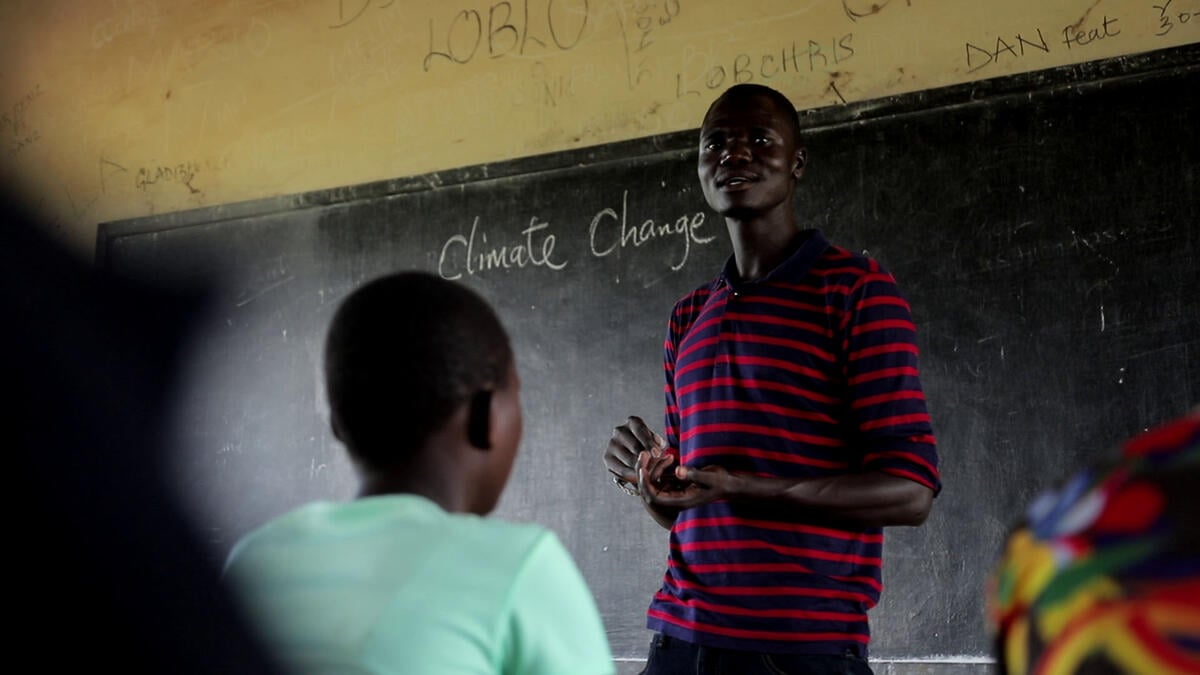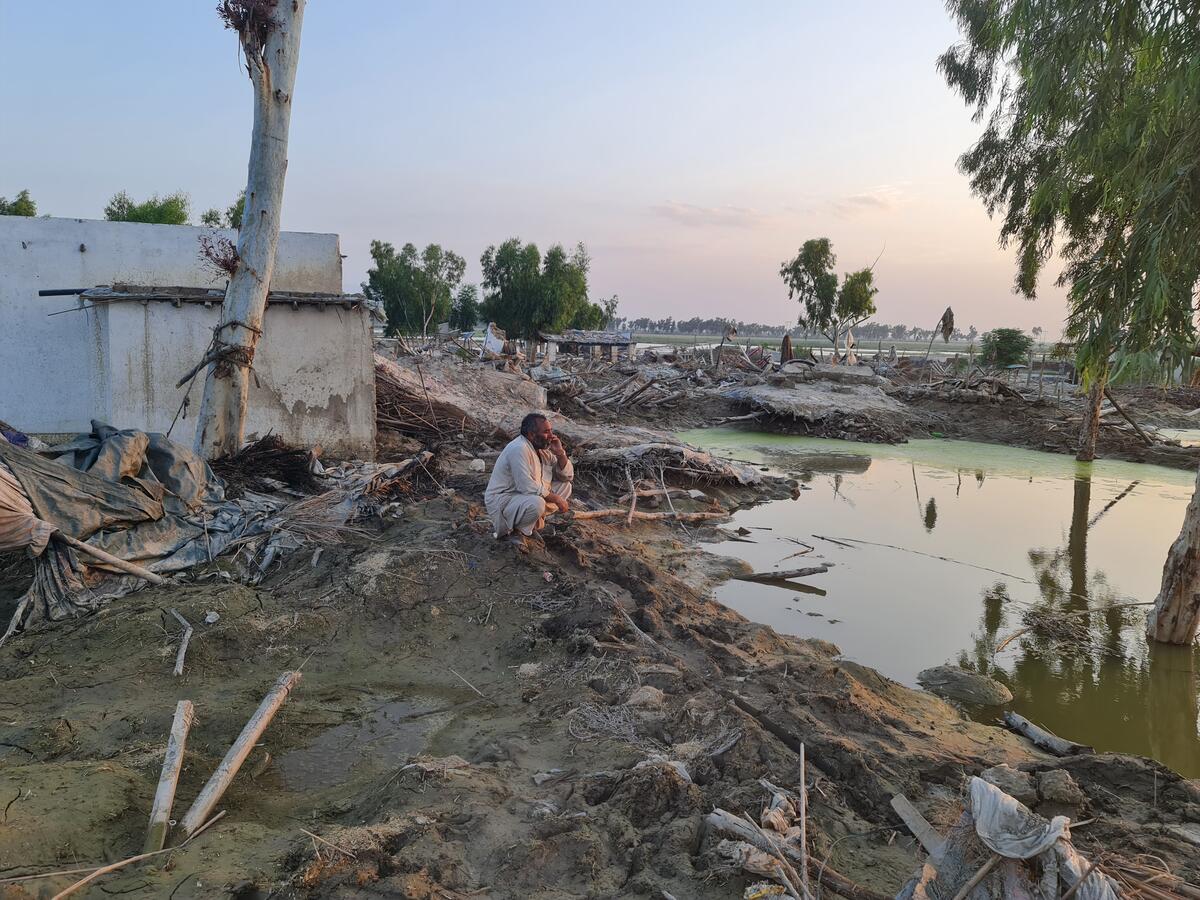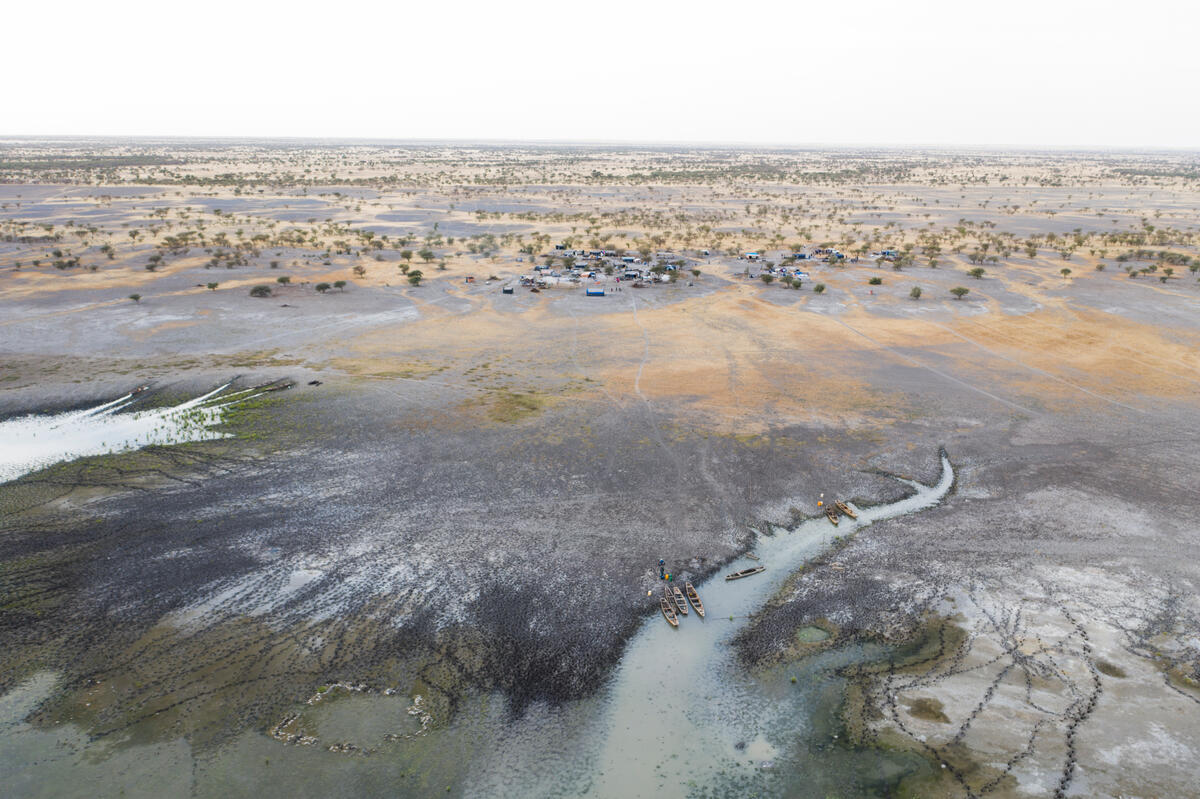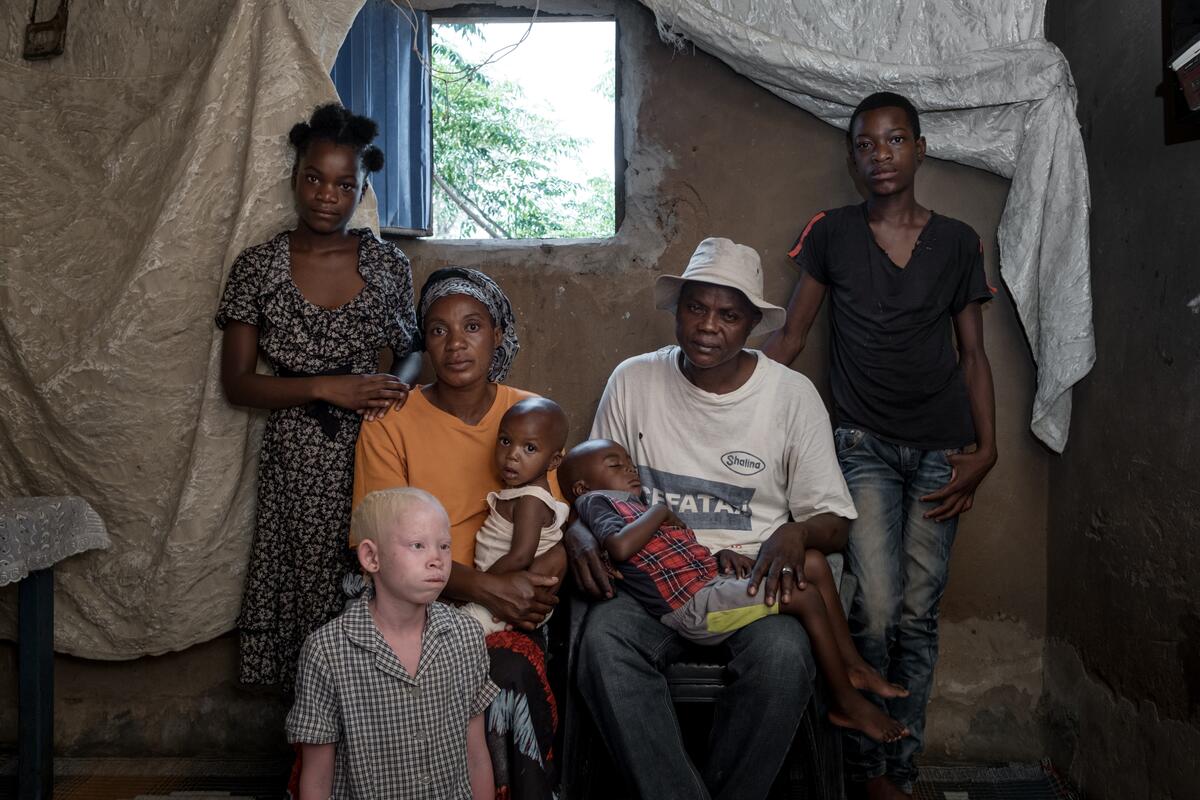Climate change could become the biggest driver of displacement: UNHCR chief
Climate change could become the biggest driver of displacement: UNHCR chief

COPENHAGEN, Denmark, December 16 (UNHCR) - UN High Commissioner for Refugees António Guterres predicted Wednesday in Copenhagen that climate change will become the biggest driver of population displacements, both inside and across national borders, within the not too distant future.
Guterres' warning came during a press conference at the United Nations Climate Change Conference 2009, where he has been meeting officials and taking part in events and discussions on forced displacement resulting from climate change.
The High Commissioner noted that while climate change was affecting southern countries most severely, the northern hemisphere will likely also face climate shifts and related population movements. Stressing that climate change should not be considered a distant worry, Guterres noted that a staggering 36 million people were displaced by natural disasters last year, of whom more than 20 million were forced on the move by climate change-related factors.
He said natural disasters are "more intense and frequent and the human impacts are more devastating." He noted that the frequency of droughts was steadily increasing and testing the resilience of entire communities, while rising sea levels threaten to submerge island nations. If this happens, "not only states, but cultures and identities will be drowned," Guterres said.
The High Commissioner also noted that the distinction between refugees and migrants was becoming blurred, which could result in a "protection gap" for people who have no choice but to leave uninhabitable homelands and do not meet the strict legal definition of a refugee.
"There may be a need for new legal instruments and we could explore the idea of temporary protection schemes," he said. Such schemes have some precedent in a number of countries that grant protection on humanitarian grounds until conditions improve for return. Equally important would be to invest in measures to help the most vulnerable people adapt so that they will not be forced to flee.
Guterres emphasized the growing link between climate change and conflict. "Climate change can enhance the competition for resources - water, food, grazing lands - and that competition can trigger conflict."
He cited a recent study by researchers at the US universities of Berkeley, Stanford, New York and Harvard that found climate change could increase the risk of civil war in Africa by more than 50 per cent in the year 2030 compared to 1990.
"More and more people are being forced to move," he said, "Yet fewer and fewer people are free to move. Countries are becoming fortresses at a time when markets need people."
By Melissa Fleming in Copenhagen, Denmark
For related information on climate change and forced displacement, please go to:
and
Norwegian Refugee Council: Climate Changed: People DisplacedLink is external









